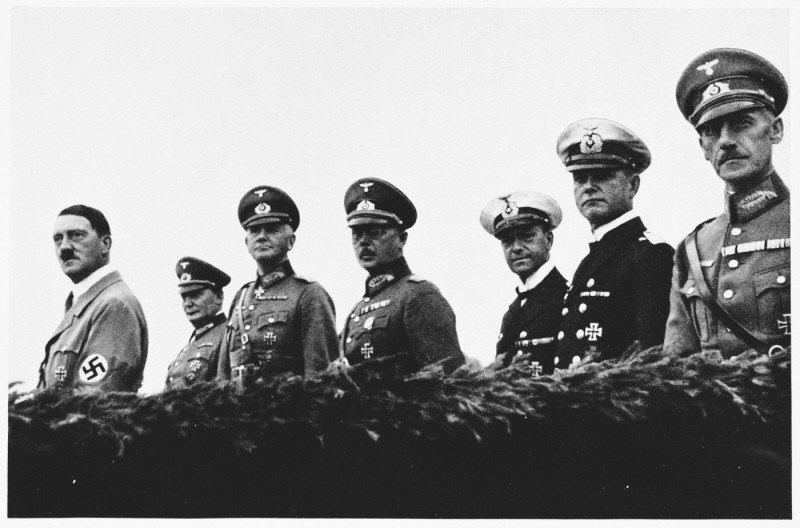-
Best Australian Pokies Best Payout
Play Free 777 Pokies Online
What Are the Best Australian Pokies to Win Big On
What Are the Best Online Pokies with Low Minimum Deposits for Real Money in Australia
New Australian Pokies Accepting PayID
What Are the Best Strategies to Win in Online Pokies with Bonus Rounds in Australia
Tips for Winning Top Australian Pokies
What Online Casinos Offer Free Play Pokies with Welcome Bonuses in Australia
Australian Slot Games
Payout Ratio Pokies with Welcome Bonus

Role German high command play in German society
Role German high command play in German society
Question: What role did the German high command play in German society and government during the First World War?
Overview
The German High Command, with Adolf Hitler at its head, directed Germany’s armed forces before and during the Second World War. Germany’s military leaders were central to Hitler’s rise to power, supported his desire for a war of conquest, and were complicit in the Holocaust and many other of the regime’s crimes.
Organization of the High Command
The German high command consisted of Adolf Hitler, the War Ministry—after February 1938, the Armed Forces High Command (Oberkommando der Wehrmacht, OKW)—and the high commands of the three services: the air force (Luftwaffe), the navy (Kriegsmarine), and the army (Heer). Despite its name, the OKW was not a unifying command organization; the other services maintained their independence, with the Army High Command (Oberkommando des Heeres, OKH) and its General Staff holding a dominant position.
![Role German high command play in German society | 2022 - Best Answer Wilhelm Keitel, head of the German Armed Forces High Command, who signed orders authorizing the shooting of Soviet prisoners of war. [LCID: 73802]](https://encyclopedia.ushmm.org/images/large/35cb1e37-c8b8-4662-aa77-2badf24470fd.jpg)
Wilhelm Keitel
Wilhelm Keitel, head of the German Armed Forces High Command, who signed orders authorizing the shooting of Soviet prisoners of war. Germany, 1942.
- DIZ Muenchen GMBH, Sueddeutscher Verlag Bilderdienst
Hitler occupied the top of the hierarchy. He was not just the Führer (Leader) of Germany, but also Commander in Chief of the Armed Forces (after February 1938) and Commander in Chief of the Army (after December, 1941).
Other key figures were Wilhelm Keitel, Chief of the OKW; Alfred Jodl, Hitler’s primary military advisor in the OKW; Werner von Blomberg, Defense Minister and Commander in Chief of the Armed Forces until Hitler took over; Werner von Fritsch and Walther von Brauchitsch, Commanders in Chief of the Army until Hitler took on that role, too; and Ludwig Beck and Franz Halder, Chiefs of the Army General Staff. These men made the most important decisions regarding military policy and strategy, as well as playing key roles in political developments and occupation policies.
Political Developments, 1933–39
Like many people in Germany, its military leaders did not believe that the Allies had defeated the German army in World War I. Rather, the “stab in the back” myth arose, according to which Jews and Leftists in Germany took advantage of political unrest to betray the army and sign a treasonous peace treaty. The generals believed that another war was the only way for Germany to regain its honor, its economic prosperity, and its position as a world power.
They also believed that the next war would have to be a total war, and that only an authoritarian government could unite the country and prosecute the war successfully. Hitler and the Nazis seemed to address that role, so the generals supported Hitler’s rise to power and his suppression of all other political parties. They also went along with measures that targeted Jews, since a strong strain of antisemitism ran through the military. Hitler, in turn, poured all the resources he could into rearmament, and began laying plans for the conquest of Europe.
Thus, the army, which was the only institution in Germany that could have opposed Hitler from an early stage, showed no inclination to do so. Hitler solidified his power still further in February 1938, when he dismissed Blomberg and Fritsch, while the army did nothing. Another crisis passed later that year, when Beck tried to organize resistance to Hitler’s plan to attack Czechoslovakia. Beck did not oppose war, but he did not believe Germany was ready for the conflict.
No other generals would back him up, however, and he soon resigned. Halder, his successor, went so far as to consider a coup, again because he feared a premature war, but Hitler’s triumph at the Munich Conference took the wind out of his sails, and he never considered open rebellion again.
When Hitler ordered the invasion of Poland, the generals in complete support of him. Like many Germans, they hated the Poles and considered the Polish state to be illegitimate. And so the war began, with the high command’s full support.
Attachments
